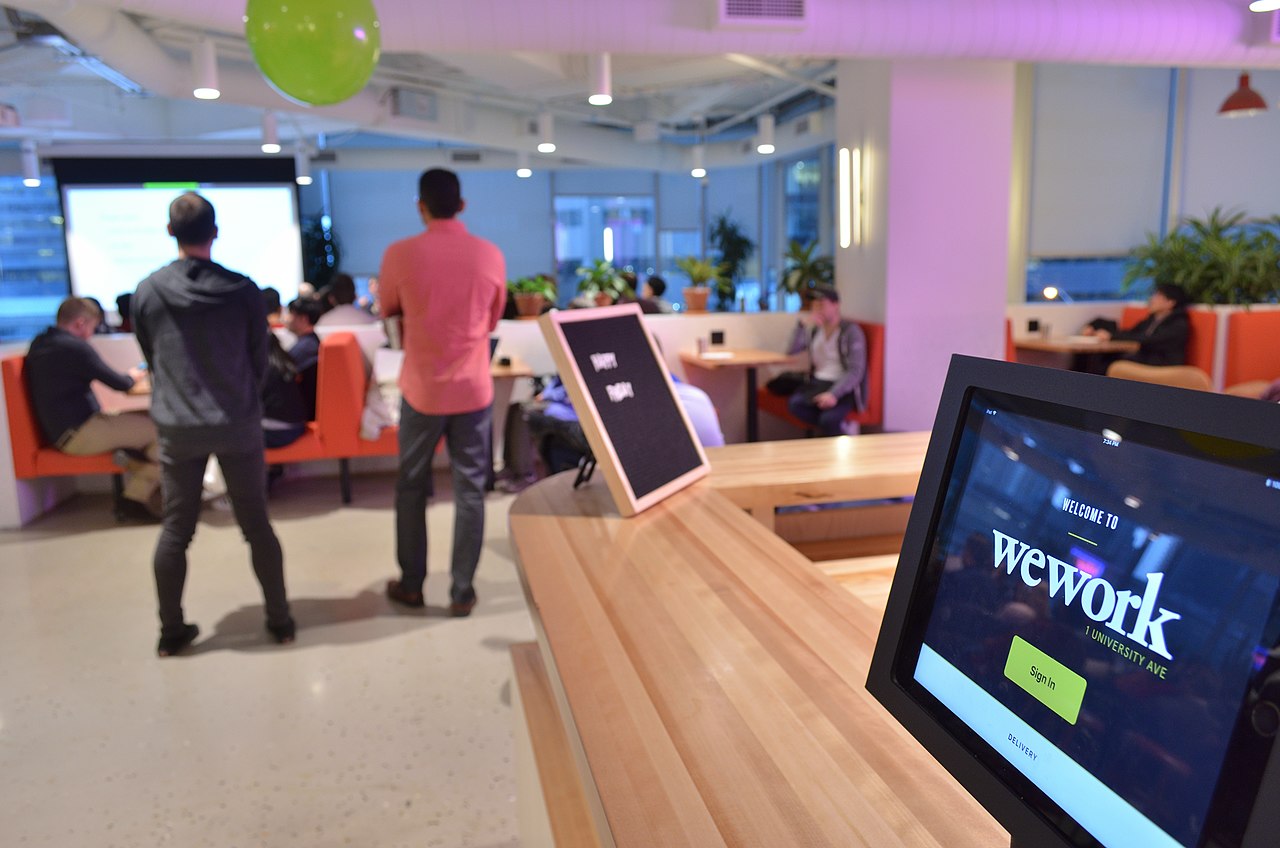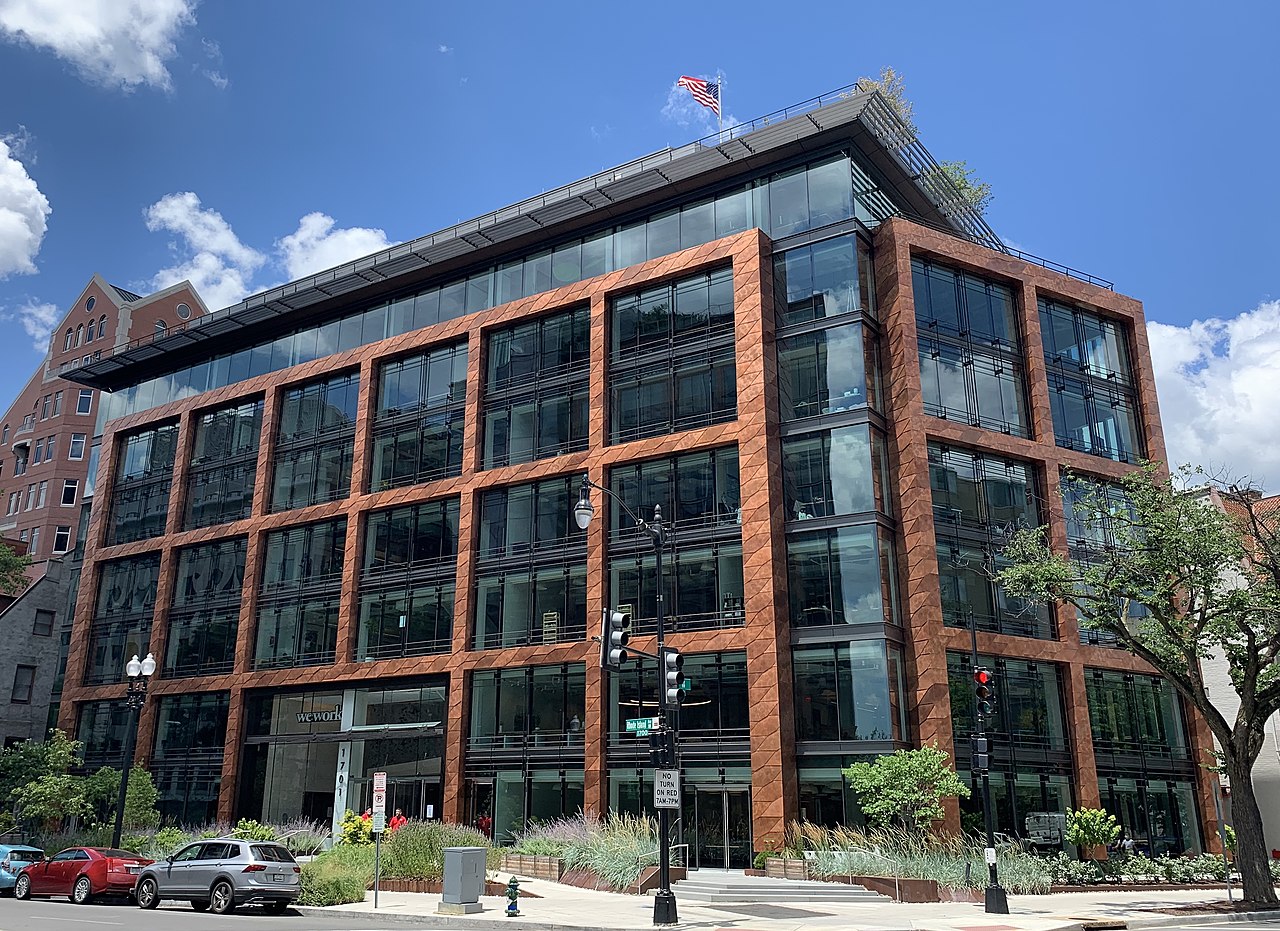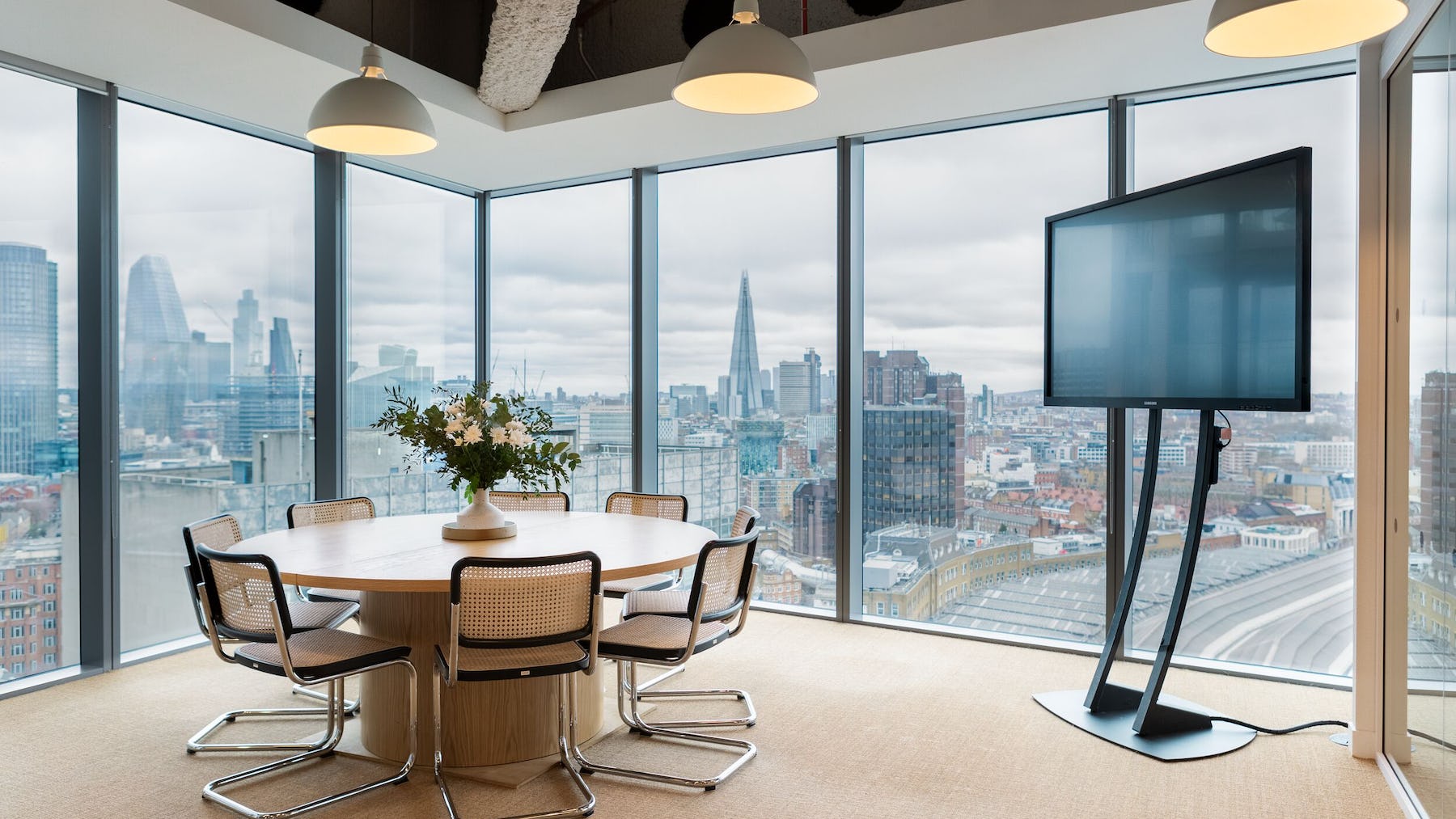WeWork Chapter 11 Bankruptcy Approved
A U.S. bankruptcy judge has approved WeWork’s Chapter 11 bankruptcy plan, a significant development for the shared office space provider.
WeWork is able to transfer its equity to a group of lenders and the real estate technology company Yardi Systems as a result of this decision, which enables the company to shed a staggering $4 billion in debt.
Restructuring Efforts
WeWork’s efforts to restructure were approved by U.S. Bankruptcy Judge John Sherwood during a hearing in Newark, New Jersey.

Wikimedia Commons user Alexisrael
During the hearing, WeWork’s attorney, Steven Serajeddini, confirmed that the company is on track to emerge from bankruptcy “in a matter of days” debt-free.
Real Estate Losses
WeWork, which is known for its rapid growth, experienced financial difficulties as a result of significant losses incurred from its extensive real estate portfolio.

Wikimedia Commons user Steve46814
As a result, the company filed for bankruptcy protection in November 2023. WeWork leveraged the bankruptcy process to negotiate significant rent cost reductions from landlords.
Rent Issues
The company decided to terminate leases at approximately one-third of its locations, saving more than $12 billion in future rent obligations.

Wikimedia Commons user Raysonho
WeWork anticipates operating 337 shared office spaces following bankruptcy, including over 170 locations in the United States and Canada.
CEO Weighs In
“Due to the tireless efforts of our team, and the unwavering loyalty of so many of our members, we have completed our Chapter 11 proceedings with success well beyond our initial expectations,” stated WeWork CEO David Tolley in response to the development.

Flickr user TechCrunch
The fact that WeWork turned down an alternative buyout proposal from Adam Neumann, the company’s co-founder and former CEO, showed the company’s determination to move in a direction that was in the best interest of its lenders.
Fielding Offers
Lenders demonstrated a preference for receiving an equity stake as part of the bankruptcy resolution, and WeWork cited Neumann’s inadequate offer as a factor in its decision.

Wikimedia Commons user AgnosticPreachersKid
Existing equity shares in WeWork will be canceled in accordance with the approved restructuring plan.
Investor Stakes
Nonetheless, top investor SoftBank will hold a minority value stake inferable from credits it stretched out to WeWork.

Wikimedia Commons user Kirakirameister
WeWork’s journey has been marked by rapid growth but marred by ongoing losses, despite once commanding a valuation of $47 billion.
Equity Estimate
WeWork now estimates that its equity will be approximately $750 million after the company goes bankrupt.

Flickr user Storyboarding
The company’s reputation was damaged by a failed attempt to go public in 2019, which was caused by concerns about corporate governance and significant losses under Neumann’s leadership.
Going Public
WeWork ultimately went public through a consolidation with a blank-check acquisition organization in October 2021.

Flickr user GoToVan
In any case, mounting misfortunes exacerbated by the Coronavirus pandemic-prompted shift towards remote work additionally stressed the organization’s monetary wellbeing.
New Path
With the approval of its Chapter 11 bankruptcy plan, WeWork hopes to end its financial woes and chart a course for long-term expansion in the ever-changing market for shared office spaces.

X user WeWork
The company is looking to chart a new course from a profitless company to a moneymaker by 2025.
Profit Projections
According to projections filed with the US Bankruptcy Court for the District of New Jersey the company is due to make a profit next year.

X user WeWork
WeWork is among the few large companies who have gone into Chapter 11 having never turned a profit, however.
Difficult Obstacles
The company is still anticipated to expect the same issues moving forward in terms of uncertainty about employees returning to the office and rising rents.

X user WeWork
According to St. John’s University bankruptcy law professor Anthony Sabino: “Forecasting a return to profitability is one thing—accomplishing it in this environment is a whole other story.”
The initial Chapter 11 filing protection was back in November as hundreds of millions of dollars were required to secure WeWork’s bankruptcy exit.
